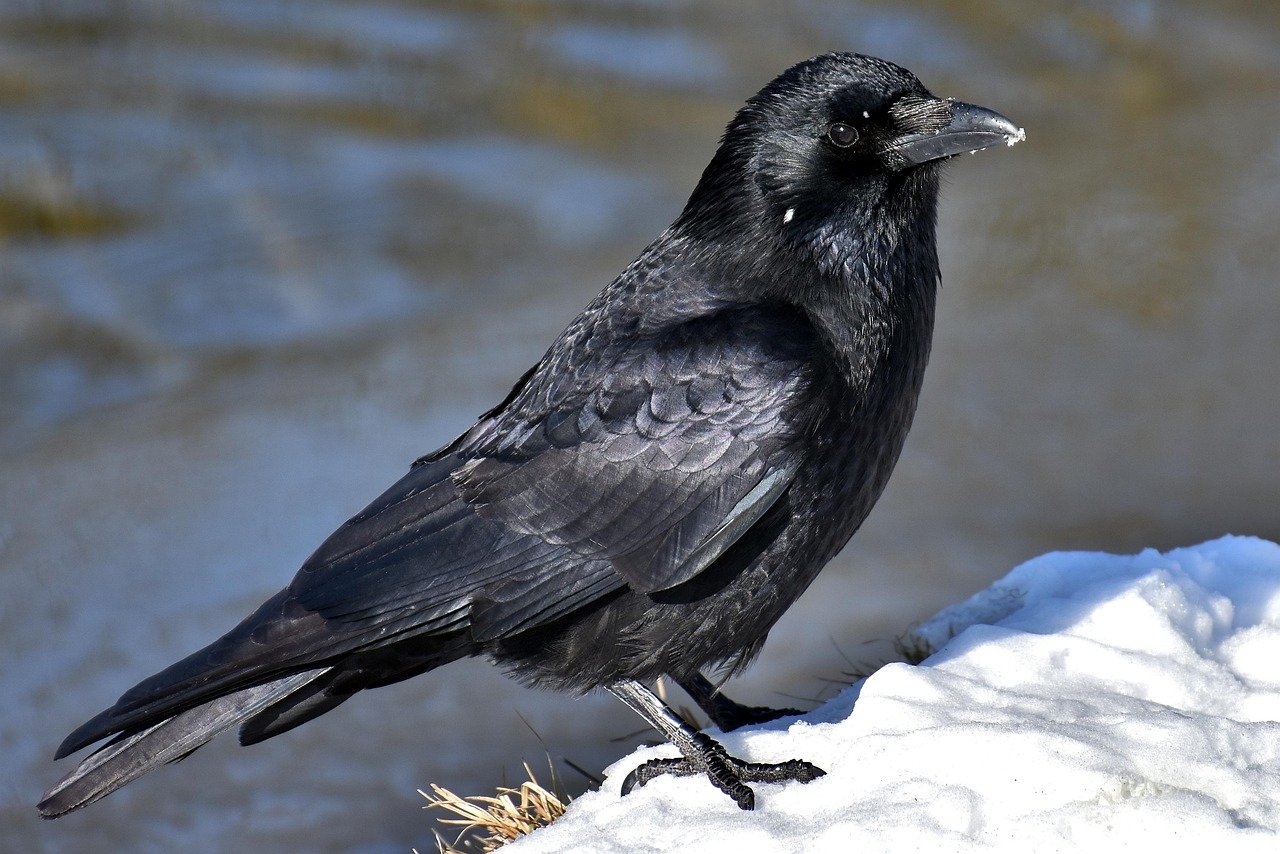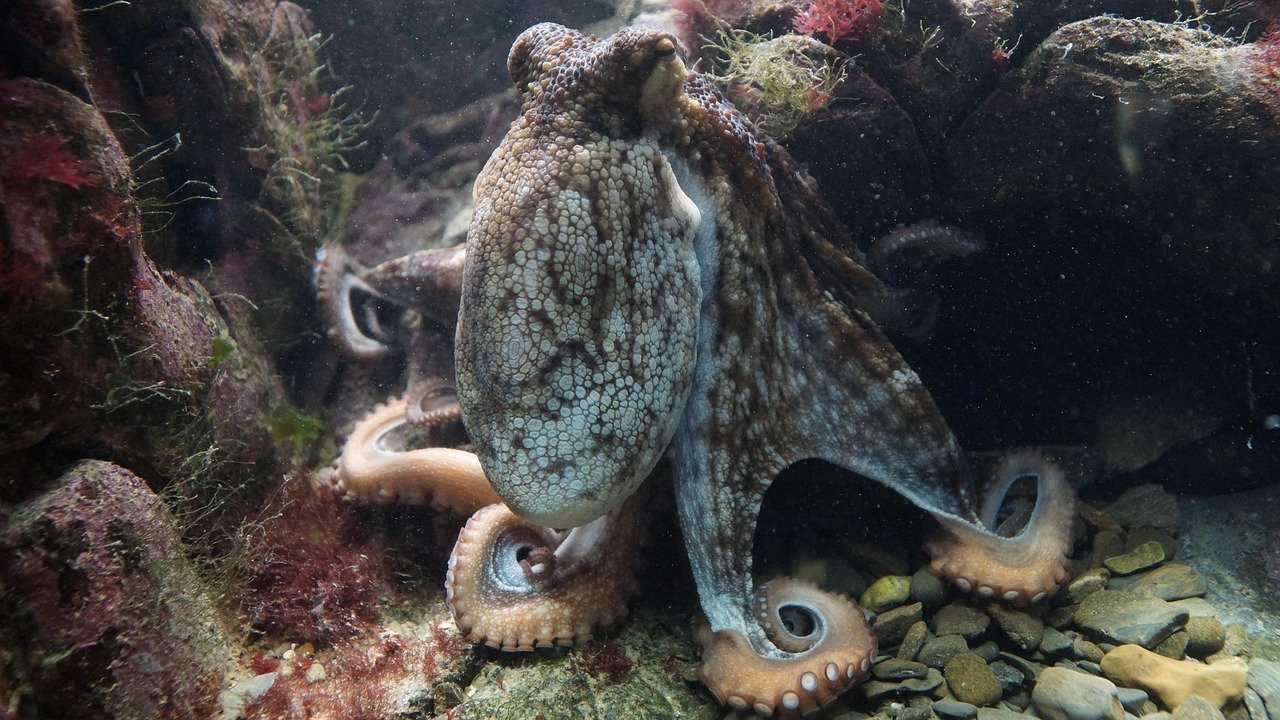In a world brimming with diverse life forms, intelligence is not solely the domain of humans. Various animals exhibit remarkable cognitive abilities, surpassing humans in specific tasks. These creatures, through evolution, have honed skills that are not only fascinating but also humbling. From solving complex problems to using tools, these animals demonstrate that intelligence comes in many shapes and sizes. This article will explore seven incredible animals whose smarts might just leave you in awe.
Crows: Nature’s Ingenious Problem Solvers

Crows are often referred to as the masterminds of the avian world. These birds are capable of solving intricate puzzles and have been observed using tools to obtain food. In some studies, crows have demonstrated the ability to understand cause-and-effect relationships, a trait once thought to be unique to humans. They can even recognize human faces and remember them for years. Imagine a crow holding a grudge against someone for years—it’s a testament to their memory and intelligence. In urban environments, crows have been seen dropping nuts on roads for cars to crack open, showcasing their innovative approach to problem-solving. Their intelligence is not just limited to survival; crows engage in playful activities, hinting at a complex social structure and cognitive depth.
Dolphins: Masters of Communication and Play

Dolphins are celebrated for their sophisticated communication skills, often regarded as the most intelligent marine animals. They use a range of sounds, including clicks and whistles, to interact with each other. Some researchers suggest that dolphins have a complex language, potentially rivaling human communication. Beyond this, dolphins exhibit self-awareness, a trait tested by their ability to recognize themselves in mirrors. These oceanic acrobats engage in play, both with each other and inanimate objects, indicating a high level of cognitive function. Dolphins have even been known to teach each other new tricks, passing knowledge through generations. Their intelligence is a reminder of the vast mysteries still hidden beneath the ocean’s surface.
Elephants: Emotional Giants with a Long Memory

Elephants are often associated with their profound emotional depth and impressive memories. Known to mourn their dead, elephants display complex social behaviors that suggest empathy and compassion. In the wild, they remember water sources and migration paths, essential for their survival in harsh environments. Elephants have been observed using branches to swat flies or scratch themselves, an indication of their tool-use capability. They can also solve problems collaboratively, showcasing their ability to work in groups. The emotional intelligence of elephants is a subject of extensive study, revealing that their brains are wired for both logic and emotion, much like humans.
Octopuses: The Escape Artists of the Ocean

Octopuses are often dubbed the escape artists of the sea, thanks to their remarkable problem-solving skills and dexterity. With the ability to open jars and navigate mazes, octopuses exhibit intelligence that is both astonishing and mysterious. Their ability to change color and texture for camouflage is not just instinctual but also a calculated decision to avoid predators. Some species of octopus have been observed using coconut shells as mobile homes, a clear sign of tool usage. Their short lifespans are a stark contrast to their cognitive abilities, raising questions about the evolution of intelligence. The octopus’s brain is spread throughout its body, with a significant portion of its neurons located in its arms, allowing for independent movement and thought.
Chimpanzees: Our Close Relatives with Complex Minds

Chimpanzees share about 98% of their DNA with humans, making them our closest living relatives in the animal kingdom. This genetic similarity is reflected in their intelligence and behavior. Chimpanzees use tools, such as sticks to extract termites from mounds, and have been observed crafting tools to suit specific needs. Their social structures are intricate, with the ability to form alliances and demonstrate empathy. Chimpanzees have been taught sign language in captivity, showcasing their ability to learn complex communication methods. They also exhibit self-awareness, recognizing themselves in mirrors—a trait few animals possess. These primates highlight the fine line between human and animal intelligence, offering a glimpse into our evolutionary past.
Parrots: Avian Mimics with a Flair for Learning
Parrots are known for their vibrant feathers and remarkable ability to mimic human speech. However, their intelligence goes beyond mere mimicry. Parrots can understand concepts like numbers, colors, and shapes, demonstrating cognitive abilities akin to a young human child. Some parrots have been taught to use words in context, indicating an understanding of language that surpasses simple repetition. The African Grey Parrot, in particular, is renowned for its problem-solving skills and emotional sensitivity. Parrots engage in social play, which is crucial for their mental development, and they can form strong bonds with humans, reflecting their social intelligence. Their vocal abilities and cognitive skills make parrots one of the most intelligent avian species.
Pigs: Surprisingly Smart Farm Animals
Pigs are often underestimated, but their intelligence rivals that of dogs and even some primates. They are capable of learning complex tasks and can solve mazes with ease. Pigs have been observed using mirrors to find hidden food, showcasing their ability to use reflections to their advantage. These animals possess a strong sense of direction and memory, remembering locations for long periods. Pigs are also social animals, forming close bonds with each other and displaying a range of emotions. Their intelligence is reflected in their playful behavior, and they have been known to engage in activities purely for enjoyment. Pigs challenge the stereotype of farm animals being simple-minded and reveal the depth of animal intelligence in unexpected places.
In exploring the cognitive abilities of these seven animals, it becomes clear that intelligence is not exclusive to humans. Each of these creatures exhibits unique skills that allow them to thrive in their environments, often surpassing human capabilities in specific tasks. As we continue to study and understand the animal kingdom, we uncover the intricate tapestry of life on Earth, where intelligence takes many forms and shapes.




